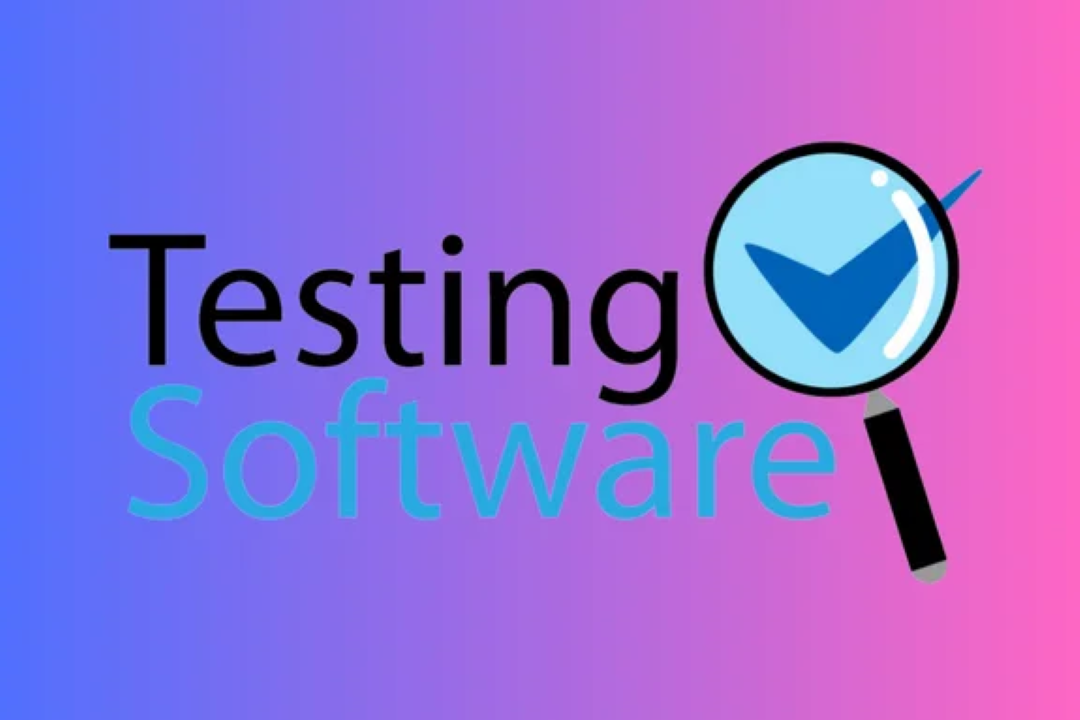Java Selenium Courses
Java Selenium courses provide a comprehensive learning experience focused on using the Selenium fram
Java Selenium Courses
Java Selenium courses equip learners with the skills to automate web application testing, making them essential for anyone looking to pursue a career in software quality assurance. By mastering Selenium, a widely-used testing framework, participants gain the ability to write efficient test scripts in Java, ensuring that web applications function correctly across various browsers and platforms. The hands-on projects included in the curriculum enable students to apply theoretical knowledge to real-world scenarios, enhancing their problem-solving skills and preparing them for the demands of modern software development environments. With the rising emphasis on automated testing, these courses are increasingly valuable in helping professionals stay competitive in the tech industry.
To Download Our Brochure: https://www.justacademy.co/download-brochure-for-free
Message us for more information: +91 9987184296
Java Selenium courses equip learners with the skills to automate web application testing, making them essential for anyone looking to pursue a career in software quality assurance. By mastering Selenium, a widely used testing framework, participants gain the ability to write efficient test scripts in Java, ensuring that web applications function correctly across various browsers and platforms. The hands on projects included in the curriculum enable students to apply theoretical knowledge to real world scenarios, enhancing their problem solving skills and preparing them for the demands of modern software development environments. With the rising emphasis on automated testing, these courses are increasingly valuable in helping professionals stay competitive in the tech industry.
Course Overview
The “Java Selenium Courses” provide a comprehensive introduction to automated testing of web applications using Java and the Selenium framework. Participants will gain hands-on experience in writing and executing test scripts, managing browser interactions, and utilizing various testing tools. The course covers essential concepts such as test case design, debugging, and reporting, along with real-time projects that simulate industry challenges. By the end of the course, learners will be equipped with the skills needed to implement effective testing strategies, ensuring high-quality software delivery in dynamic development environments.
Course Description
The “Java Selenium Courses” at JustAcademy provide a thorough introduction to automated testing using Java and the Selenium framework. Designed for both beginners and experienced testers, this course offers an in-depth exploration of writing effective test scripts, managing browser interactions, and implementing best practices in test automation. Participants will engage in real-time projects that reflect real-world scenarios, enabling them to apply their skills in practical settings. By the end of the course, learners will have a solid understanding of automated testing processes, positioning them for success in their software development career.
Key Features
1 - Comprehensive Tool Coverage: Provides hands-on training with a range of industry-standard testing tools, including Selenium, JIRA, LoadRunner, and TestRail.
2) Practical Exercises: Features real-world exercises and case studies to apply tools in various testing scenarios.
3) Interactive Learning: Includes interactive sessions with industry experts for personalized feedback and guidance.
4) Detailed Tutorials: Offers extensive tutorials and documentation on tool functionalities and best practices.
5) Advanced Techniques: Covers both fundamental and advanced techniques for using testing tools effectively.
6) Data Visualization: Integrates tools for visualizing test metrics and results, enhancing data interpretation and decision-making.
7) Tool Integration: Teaches how to integrate testing tools into the software development lifecycle for streamlined workflows.
8) Project-Based Learning: Focuses on project-based learning to build practical skills and create a portfolio of completed tasks.
9) Career Support: Provides resources and support for applying learned skills to real-world job scenarios, including resume building and interview preparation.
10) Up-to-Date Content: Ensures that course materials reflect the latest industry standards and tool updates.
Benefits of taking our course
Functional Tools
1 - Selenium WebDriver: Selenium WebDriver is the core component of the Selenium suite and serves as a vital tool for automating web applications for testing purposes. It provides a programming interface for creating and running test scripts in various programming languages, including Java. WebDriver interacts directly with the web browser, controlling it in the same way a human would. This allows testers to run their test cases across different browsers like Chrome, Firefox, and Safari, ensuring cross browser compatibility. In our Java Selenium course, students gain hands on experience using WebDriver to write robust automation scripts.
2) TestNG: TestNG is a testing framework inspired by JUnit but with additional features for more flexible and powerful testing. It allows for easy creation of test cases, grouping of tests, and parallel execution, which saves time and resources. TestNG supports annotations, which simplify the code structure and provide clear lifecycle management for tests. In our training program, students learn to use TestNG to manage their test suites effectively, generate comprehensive reports, and facilitate continuous integration in automation testing.
3) Maven: Maven is a build automation tool used primarily for Java projects. It simplifies the management of project dependencies, builds, and documentation. In the context of Java Selenium courses, Maven helps students automate the setup of their testing environments by managing libraries and dependencies essential for Selenium and other tools. By incorporating Maven into testing practices, students learn to streamline their project workflow and improve collaboration in team settings.
4) JUnit: JUnit is another popular testing framework that plays a significant role in our Java Selenium training program. It focuses on unit testing and is widely used for test driven development (TDD). With JUnit, students learn how to write effective test cases, assert outcomes, and improve the reliability of their web applications. The framework promotes a systematic approach to testing and enhances code quality, making it a fundamental tool in the automation testing landscape.
5) Page Object Model (POM): The Page Object Model is a design pattern that enhances test maintenance and reduces code duplication. In our Java Selenium courses, students explore how to implement POM in their projects, creating an abstraction layer between the test scripts and the page elements. This separation gives clear structure to automation code, allowing for easier updates and modifications when the application interfaces change. Learning POM equips students with best practices to write maintainable and scalable test frameworks.
6) Selenium Grid: Selenium Grid is a tool that allows for the execution of tests on multiple machines and browsers simultaneously, significantly speeding up the testing process. This capability is essential for ensuring that applications perform well across different operating systems and devices. In our training program, students will set up and use Selenium Grid, learning how to configure different nodes and manage distributed tests effectively, which prepares them for real world testing scenarios.
7) Continuous Integration (CI) Tools: Continuous Integration tools like Jenkins, CircleCI, or GitLab CI play a crucial role in modern development practices. In our Java Selenium courses, students explore how to integrate their automation tests into a CI pipeline. This process allows for automated testing whenever new code is committed, which helps catch bugs early and ensures that the software remains stable. Learning to configure these tools for running Selenium test suites prepares students for agile development environments where rapid deployment is critical.
8) Behavior Driven Development (BDD): BDD is a collaborative approach that emphasizes writing tests in a natural language format, making it easier for all stakeholders, including non technical team members, to understand the test cases. Tools like Cucumber and Gherkin enable this approach. In our training, students learn how to write BDD style test cases alongside traditional automation scripts, enhancing communication within teams and ensuring that the developed features meet user requirements.
9) API Testing: While primarily focused on web UI testing, our courses also introduce students to API testing using tools like Postman or RestAssured along with their Selenium automation skills. Understanding how to test the backend of applications helps for a more comprehensive testing strategy and equips students with the ability to validate not just the UI but also the functionality and performance of web services integrated with their applications.
10) Headless Browser Testing: Headless browsers, such as PhantomJS or headless Chrome, allow testers to run tests without a graphical user interface, which can lead to faster execution times and lower resource consumption. In our courses, students learn how to implement headless testing strategies to run their automation scripts efficiently, useful for scenarios where visual verification is not required.
11 - Error Handling and Reporting: Robust error handling and reporting mechanisms are essential for effective automated testing. Our training emphasizes techniques for capturing exceptions, taking screenshots on failures, and generating detailed test reports using tools like Allure or ExtentReports. This allows students to better analyze test results and quickly pinpoint issues, enhancing the overall quality of their testing efforts.
12) Advanced Selenium Features: Students in our Java Selenium courses dive into advanced features such as handling AJAX calls, file uploads/downloads, and working with dynamic content. Understanding these aspects is vital for creating comprehensive tests that mimic real user interactions with modern web applications.
13) Mobile Automation Testing: With the rise of mobile applications, knowledge of mobile automation tools such as Appium is increasingly valuable. Our courses introduce students to mobile testing practices alongside web automation, ensuring they have a well rounded skill set to test applications across devices effectively.
14) Version Control with Git: Proficiency in version control systems like Git is crucial for any developer or tester. In our courses, students learn how to manage their automation code using Git, track changes, collaborate with teammates, and maintain a clean codebase. This skill is essential for any automation engineer working in a team environment.
15) Real World Project Experience: At JustAcademy, students engage in real time projects that simulate actual testing scenarios in professional environments. This practical experience enhances learning and equips students with the confidence and skills necessary for their careers in automation testing. They will work on developing complete test frameworks, running tests, and addressing real world challenges, ensuring they are job ready upon course completion.
Browse our course links : https://www.justacademy.co/all-courses
To Join our FREE DEMO Session:
This information is sourced from JustAcademy
Contact Info:
Roshan Chaturvedi
Message us on Whatsapp: +91 9987184296
Email id: info@justacademy.co
Best Resources To Learn React Native












